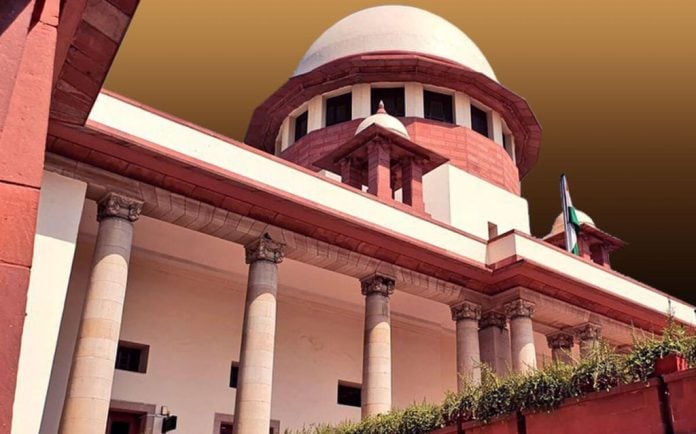The verdict delivered by the Supreme Court in the Zakia Jafri case on June 24, has come under scanner by a group of former civil servants on Wednesday.
A group of 92 former bureaucrats called the Concerned Citizens Group issued a statement on the matter.
Zakia Jafri is the wife of former Congress MP Ehsan Jafri, who was killed along with 68 other people on February 28, 2002, during the Gulberg society massacre in Ahmedabad.
Activist Teesta Setalvad, along with Zakia, had challenged the report submitted by the Special Investigation Team on the 2002 Gujarat riots that had cleared Narendra Modi, who was then the Chief Minister of the state.
On June 24, the Apex Court had dismissed the petition, saying that the plea had been filed ‘to keep the pot boiling for ulterior design’.
Earlier in the day, former Director General of Police, Gujarat R.B. Sreekumar and Setalvad were arrested for allegedly committing forgery and fabricating evidence in a case related to the 2002 Gujarat riots.
Besides, the name of former Indian Police Service officer Sanjiv Bhatt, who is serving life imprisonment in a 1990 custodial death case, also figured in the case.
The statement issued by the Concerned Citizens Group said, “The court has come out with a doctrine which enjoins the state to arrest and prosecute persons who dare to question the findings of investigating agencies, if the court decides that these findings are beyond reproach.”
It further said that Gujarat Police’s action against Setalvad, Sreekumar and Bhatt clearly took place because the court told the authorities to put those who ‘kept the pot boiling’ in the dock.
“Has the Supreme Court now decided that appellants before it and their counsel should be proceeded against merely for being assiduous and persistent in their appeal?,” they asked.
The statement further mentioned reports by the National Human Rights Commission and Amicus Curiae (friend of court) Raju Ramachandran, stating that investigation was required to look into Modi’s role in the riots.
It also quoted an April 12, 2004 verdict of the Supreme Court, which said that those responsible for protecting the life and property and ensuring the fairness of investigation, seem to have ‘shown no real anxiety’.
While quashing the acquittal of 21 accused in the Best Bakery case, which was also related to the Gujarat riots of 2002, the Apex Court had made some unusual remarks.
The court had also remarked that modern day ‘Neros’ were looking elsewhere when Best Bakery and innocent children and helpless women were burning, and were probably deliberating how the perpetrators of the crime could either be saved or protected.
The former civil servants said, “Shall we henceforth presume that natural justice can be given the go-by as a cardinal principle of our jurisprudence and people condemned without being heard?”
They requested the Apex Court to withdraw its observations against Setalvad and other activists, and order the unconditional release of those who had been arrested.


